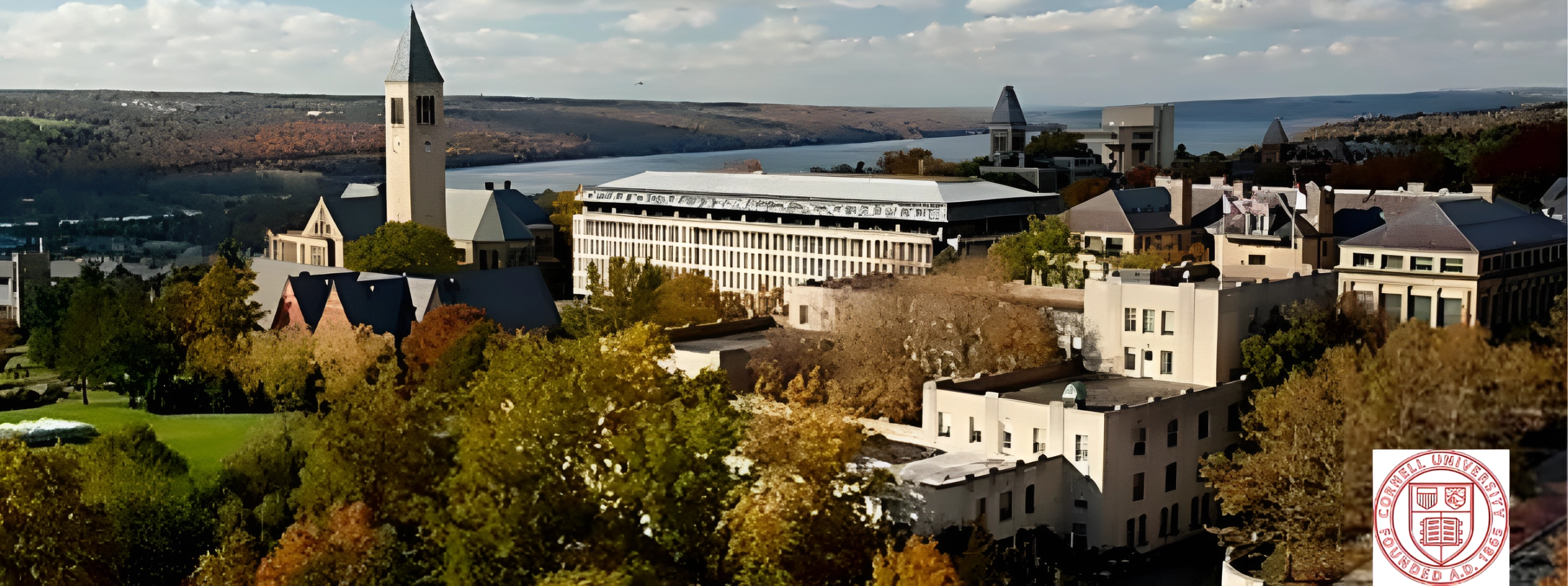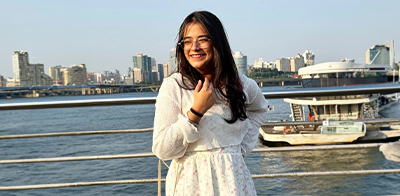Name: Vansh Kakra
University: Cornell Dyson School of Economics and Management
Course: Double Major in Applied Economics and Management (Finance) and Information Science (Data Science)
Location: Ithaca, New York, USA
- Achievements:
Global Citizenship Award by EARCOS, June 2022: One of 15 recipients across Asia for social service.
Young Changemaker of India Award by the Government of India, April 2022: One of 30 most influential young social entrepreneurs.
Innovators Award by IB (International Baccalaureate), August 2021: One of 30 recipients worldwide; received a $10,000 Grant for scaling up community impact.
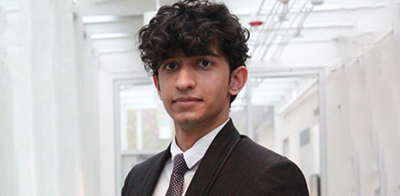
When did you decide you want to be in an Ivy League?
Vansh: I had been aiming for a top-notch university since I was in eighth grade but didn’t narrow down my options till 11th or 12th grade. I was also looking at Harvard and the Wharton School but Cornell Dyson School of Economics and Management is more finance-oriented so I picked it.
How long did you work on your application?
Vansh: For the past five years. Two people in my family inspired me, one was my grandfather, who grew up in a village in Rajasthan, where he didn’t have access to education and went to a school 50-km away. He worked hard and became a lawyer at the Supreme Court. He taught me discipline. My father also took education very seriously. So, I also wanted to be ambitious and achieve something and the topmost bar as a student was to be in an Ivy League.
How did you start preparing?
Vansh: I started researching what people do to get in, talking to students who were there and doing research. You need to be good at extra curriculars, academics and you need to be unique. They look for individuals who can create social impact. What makes you stand out? That’s the way admissions officers look at an application.
When did you begin working on your portfolio? And what was it like?
Vansh: I started focussing on it when I was in eighth grade. I spent a lot of time working, and gave up on my social life to focus on academics and extra-curriculars. Till the tenth grade, I was totally stressed about education and my marks. But when I got into 11th grade, the stress affected my performance.
How did you strike that balance?
Vansh: I talked to my grandfather and he told me to try meditation. That changed my life. I enrolled in art of living and it made me more productive, maintain my energy levels and be more socially active as well. I continued it through 11th and 12 grade, I would do Sudarshan Kriya early in the morning, then carry on with my day. At the end of the day I would do guided meditations by Sri Sri Ravishankar.
How did you plan your day during the application process?
Vansh: I would be up at 4 am everyday to meditate and then write my essays before school. And to stay positive after submitting my application, I would do two things – I would write in a notebook saying I will get into Cornell on December 15. I was being precise with my goals. Self-affirmations really helped me. I was also confident that I was a good applicant. I gave it my all.
When did you get to Cornell?
Vansh: I arrived on August 10, 2023, so I had about two months post my exams to get my visa and so on ready. The University applied for an F1 visa, I needed to fill that application with my passport details etc. You have to pay a service fee of Rs 30,000 and submit it along with your passport, Aadhaar and id details. Then you go to the visa office, do a biometrics round and an interview round.
Can you talk about the visa process?
Vansh: Three questions mainly – financing, I had to show my bank statement reflecting one years’ fees and give a letter from the bank. They also want to know about your college, course and what you intend to do in the US. The process was mainly university-driven, they tell you when to apply. It helps to be admitted to an Ivy League but it doesn’t give your visa priority as such.
Where do you live? And how do you prepare for your journey?
Vansh: Undergrads get university housing, so I live in a dorm on campus. I packed my entire closet and also additional things like a cooker, ready-to-cook meals, and Indian snacks. You crave Indian food in the US. I took some winter clothes from India but it’s best to buy in the US because you just won’t get that quality back home. Pro tip: Use vacuum bags to pack because they consume less space.
Were you homesick? How did you settle in?
Vansh: When I first landed in NYC, I was like, wow I’m in the city of dreams. You know your life is changing but you only think about that later. When you’re going you’re thinking of your flight and the fact that you have been on a plane for 18 hours. It hit me three months later, that I was so far from my family. I remind myself that I’m building my own life and that I’m here with a purpose. You get homesick then you remember htat you’re always going back.
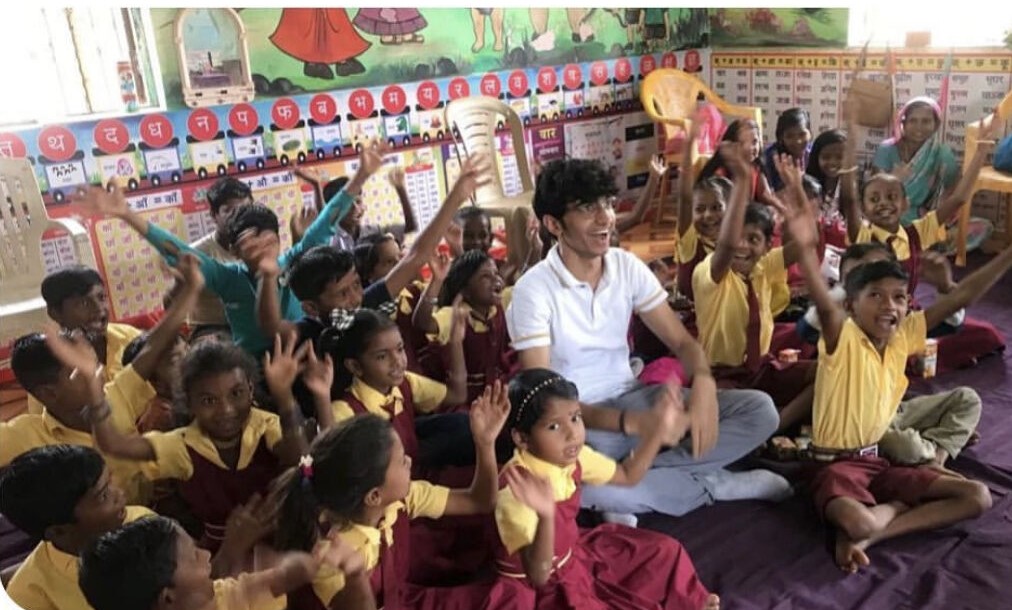
What are classes like?
Vansh: In the US, we have four years of undergrad with two years of general requirements. In the third and fourth year you study what you are meant to study. I’m trying to merge them between the first two years and you are given that kind of freedom to do these things as well. I have Maths, English, Business Management and Organization, Spreadsheet Modelling and Design your Dyson, which is to help us understand what the college has to offer.
Talk about about the faculty…
Vansh: The professors take the classes and they have their teaching assistants, who are students, to do more routine tasks like check our assignments and so on. Apart from this, we also have amazing guest lecturers, so far I have had Narayana Murthy, Bill Jordan, the creator of the Realtree and Advantage Brands, the MD of Goldman Sachs and an Amazon C Suite executive.
How many hours of class per day?
Vansh: Around three to four hours everyday, although some days can have as many as six hours.
What’s the Indian community on campus like?
Vansh: There is definitely support from the Indian community here. We have eight Indian students in this batch and 26 overall. We have our own groups and every Friday and Saturday, we go to an Indian restaurant. Ithaca has one restaurant that we like and go to.
I also gather together with a group of Indian, Pakistani and Turkish students, and we party on our own. Personally, making friends with Americans has been tough. We had our own parties at home but here, you become part of a frat and party very hard in frat houses. I was not a part of that culture in India and I have rejected it here too.
What are your classmates like at Dyson?
Vansh: Dyson is the smallest school in Cornell and has only 150 students – in comparison, the computer science department has 700 students. So, if you’re here you interact with everyone. There are group projects, we team up during class and after that. But when you’re in the cafeteria or your dorm you learn to socialise with everyone.
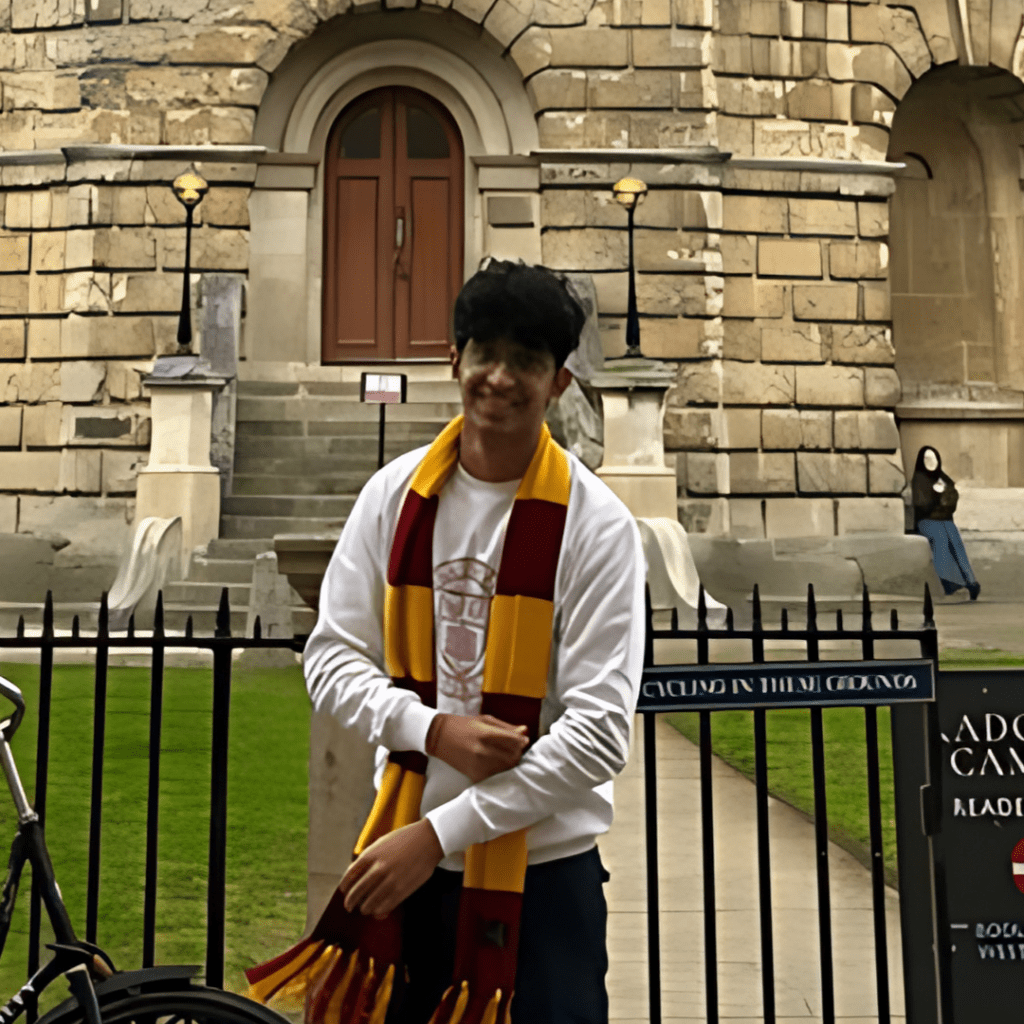
How do you network on and off campus?
Vansh: There’s a concept called ‘coffee chatting’ which is common in Ivy Leagues. If you want to be part of an academic or non academic club, or interact with another student, you write a professional email, say when you’re available and that you would like to get to know them. Cornell makes you do this compulsarily, because even to get into a club you have to know people there before you can get in so they vouch for you.
What’s the club process like?
Vansh: You have a resume drop and then a behavioural round, a technical interview round and a group-facing round. If you get selected, you get a call or they come to your dorm and take you for a treat. Recruitment is intense and then you have to be on your toes afterward too. But clubs are full of resources. If you want a job or internship and I know a former club member in the company I like, they can vouch for me there. There’s a lot of networking and word of mouth involved here and you need a good social image.

